Anna Boyarkina, Miro (formerly RealtimeBoard): on grocery thinking, team culture, skills of the future
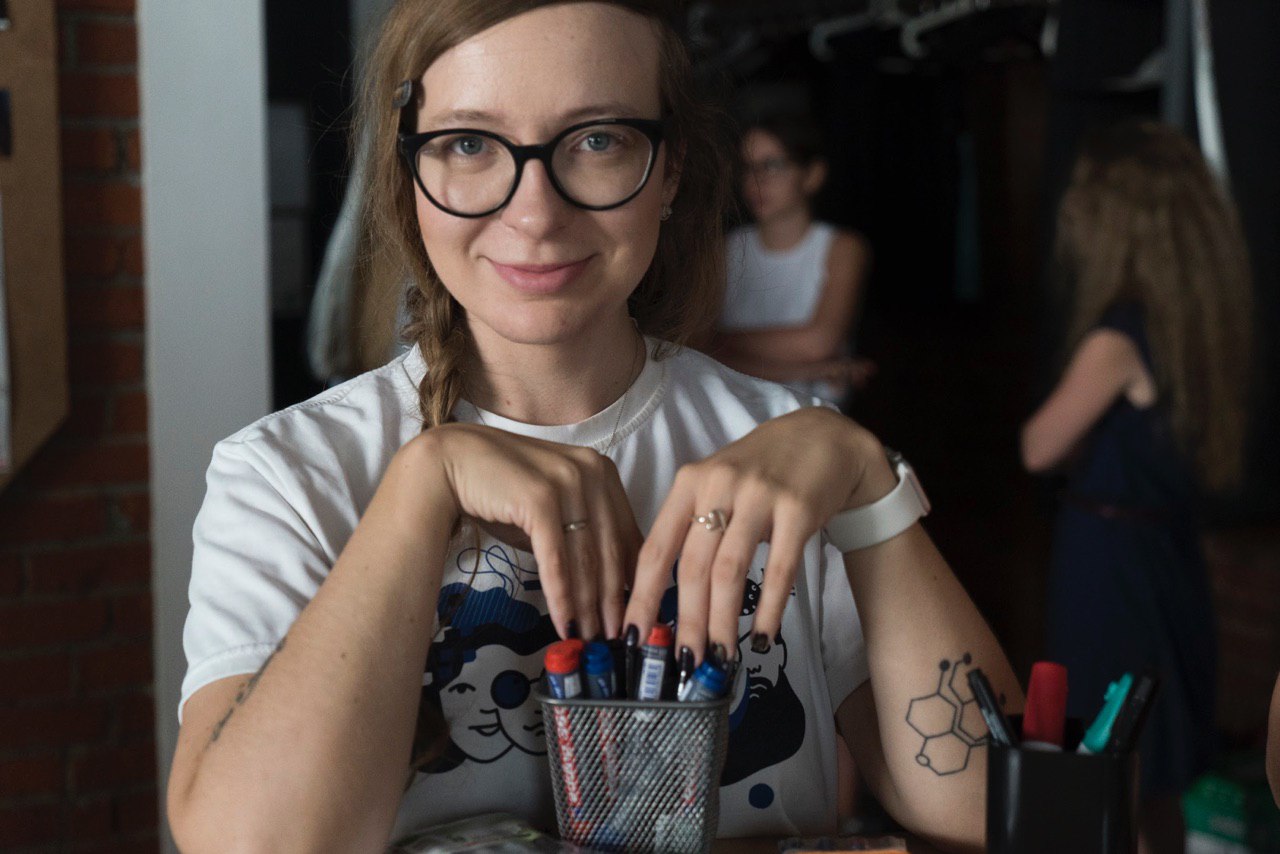
I spoke with Anna Boyarkina, the head of the product at Miro (formerly known as RealtimeBoard), a platform for visual collaboration. This is the eighth in a series of interviews with the masters of their business about the grocery approach, behavior change and entrepreneurship.
Context
Caught you in California right after the San Jose conference. What are you doing here?
Arrived at Saastr. There were Dropbox, Slack, Box and other companies, many with an annual income of more than $ 100M. In this weight class, people from SaaS are looking for opportunities to talk with the same as they are, and of course, in addition to this, share experiences.
What are they talking about?
Talk about the land and expand model and how to scale products are popular. There was a lot of talk about the "consumerization" of corporate products - about the fact that now the software in the company does not spread from the top down - the teams themselves choose what to use. After some kind of critical mass, IT specialists have no choice but to allow such software throughout the company. And now it is very important to make products that people will love, even if it is an enterprise segment.
There is a lot of talk about growth, I liked the slide from Jason Lemkin (the founder of Saastr): it is almost impossible to grow a product to 1 million, from 1 to 10 it is incredible, and from 10 to 100 it is already inevitable.
This is similar to the explosive exponential growth that investors are looking for. Do you think that venture investments and grocery thinking are inseparable?
Not at all. There are lifestyle or niche products that are quite good for themselves and develop without venture capital. But at some point you can make a business out of a product. And then this is another story. You begin to look through the prism of not a small group of people and their problems, but in a completely different way. How can you solve the big problem of a lot of people in such a way that it will bring $ 100M? If you go in the right direction, venture investors will find you. This, in general, is a well-known story about the product-market fit - if the market is large, then investors are interested.
Accel found you and invested $ 25 million. Why do you need this?
We have been breakeven for several years now, and this is money in growth, but in general it’s not about the money as such - for us it’s primarily a partnership. Accel invested in successful companies such as Slack, Dropbox, Atlassian, for us it is also important to go along with a partner who knows the market and the subject area well.
I would like to talk about metrics. What are the most important metrics for Miro?
The most important is usage, that is, how much the product is used. We look at three key things - Weekly Active Users, Retention and our North Star. The idea of North Star was popularized by Sean Ellis , the same one who invented the concept of "growth hacking". In theory, North Star should correlate with monetization and core value of the product. Through this metric, we see that we are solving a user's problem and are starting to get paid for it. Our North Star in Miro is the number of active collaborative boards.
Product and success
Miro is a success story on steroids, but without fanfare. Grocery startup from Perm, which grew into an international company. You are known all over the world. How did you manage it?
Do normally - it will be normal! Actually three things:
1. Good product. It turns out, when you do not stop listening to users, it is empathic to them.
2. Studying the best practices that work in the industry . It is important not to boil in the vacuum of your illusions. Looking around who does what. It helps to build both the product and the company.
3. The team that is working on it.
There is also a secret sauce: do not piss.
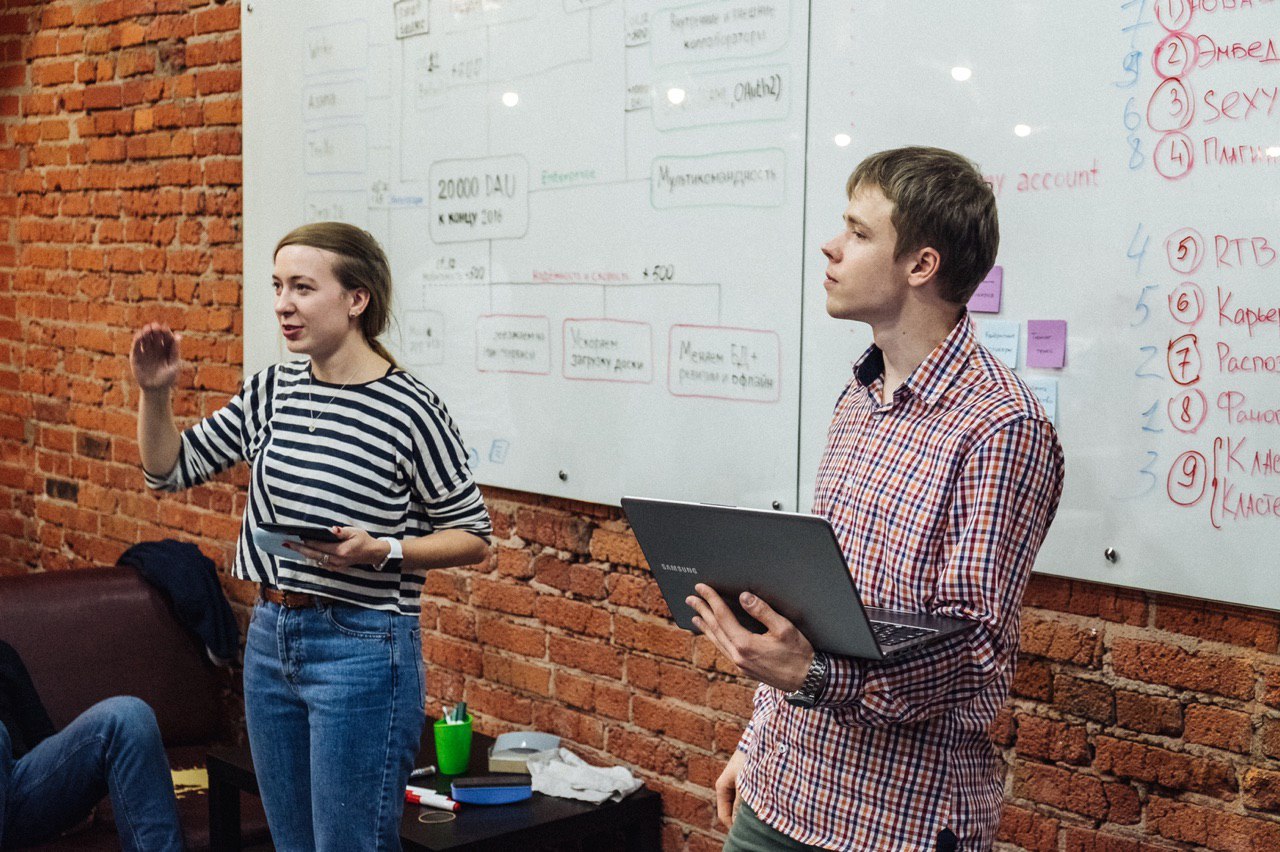
Bravery and stupidity?
Let's talk about it. I thought about it. At the initial stage, dementia and courage are what you need. It helps you move forward and fill the bumps. Choose a strategy with which you will move on.
And then you grow up, and it is necessary that dementia slowly go away. But that courage remained.
It is important to look what company you are, at what stage, in what market. Dementia is not about caring for people. Decisions must be balanced, a strategy must appear. You start thinking not in terms of a quarter-month, but of a year-three-five.
But is there a feeling that if you focus very much on attention to people, then you can not slide into inhibition? I had it when I worked in a company with a hundred-year history. Everything was very harmonious and about people, but everything moved extremely slowly.
You compare warm to soft. If you are talking about Philips, then they have a very mature industry. Why should they be agile? Maybe the company does not want to move faster.
Then, it turns out, you are talking about the stage of maturation. When courage and prudence are combined ...
It's the most important. It is unlikely that someone, starting to do a startup, wants to work in the "hulking monster." But the essence of growth is that the processes slow down. There is a bureaucracy. This is the biggest challenge: for the company to grow, but not to become a corporation.
We are still small, but we think that the processes do not slow down growth and decision making.
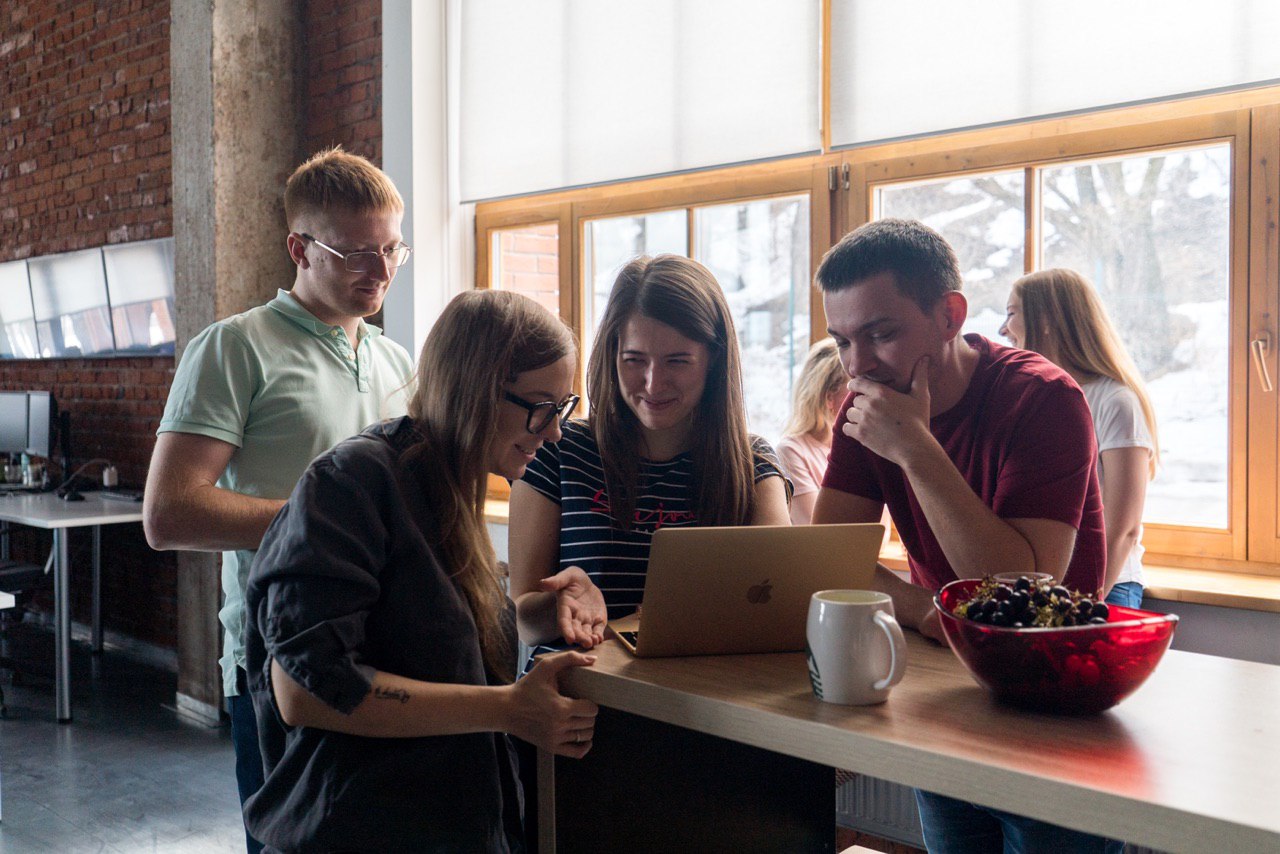
In a nutshell, what is the uniqueness of Miro as a product and for whom are you doing it?
Miro is a very simple visual way to work together. At the same time he has many opportunities with the help of which he can be adapted for himself. It is necessary to compare with anything ...
Let's compare with some prototyping service.
Take UXPin, for example. He can be a feature in Miro. It is important for us to close the workflow of users so that the creative process can take place in one place. Otherwise, you constantly switch between applications, there is no one source of truth.
The strength of our product is visualization capabilities. You can do, in principle, everything: from brainstorm to discussion of the prototype. What is not done inside the Miro can be integrated. You won’t draw product design in Miro ... But there will be integration with Sketch.
You say a lot that product for teams. And what?
Those who can not gather in one place. Where you need to think together, but there is no negotiation with the board. These are the teams that are creating something new: products and services, new product development, but not only. A lot of consulting, visual facilitation. There was even an aunt who made Miro patterns on clothes and discussed them with clients. There are a lot of yuzkeys.
And yet, when so much can be done on one platform, sooner or later the question arises: how not to become a dinosaur?
We make a platform with a basic goal. Just start working, and there are different plugins to expand the possibilities. The base is not complicated, we make a convenient platform for expansion.
When I went to interviews at various startups in San Francisco a year ago, I was surprised that at least half of the Valley's food companies knew you. What are you doing this?
The product is good to do. Other than jokes. Until the middle of last year, we had no marketing. The main way to attract users is word of mouth. People recommend to other people, we grow.
How to scale it?
Internal mechanics of virality help. Also, I really like the idea of the community. There are some cool examples when the product helped zaskeylit community: Atlassian, HubSpot. They have a very cool network effect. The more people use, the more new ones come.
At the expense of the community, people adopt the best practices and there are those who know very well how to use the product. Then it can work like this: there should appear a champion inside the company who will throw the first five people into the platform. Then the team of 5 begins to use it, it grows to 10, and further to the 50 mark. After that, the distribution in the company goes at a completely different pace - almost exponentially.
The more people in the community, the more they share, the more people come on the recommendations. At conferences, we often ask who recommended us or who learned through recommendations, there are a lot of such people.
We work for distributed teams. All the things that such teams need can be done through Miro: retrospectives, the generation of ideas, the involvement of people in the creation process.
Many see us as a simple and convenient replacement for LucidChart and Visio, and so they explain to their colleagues why they need this product.
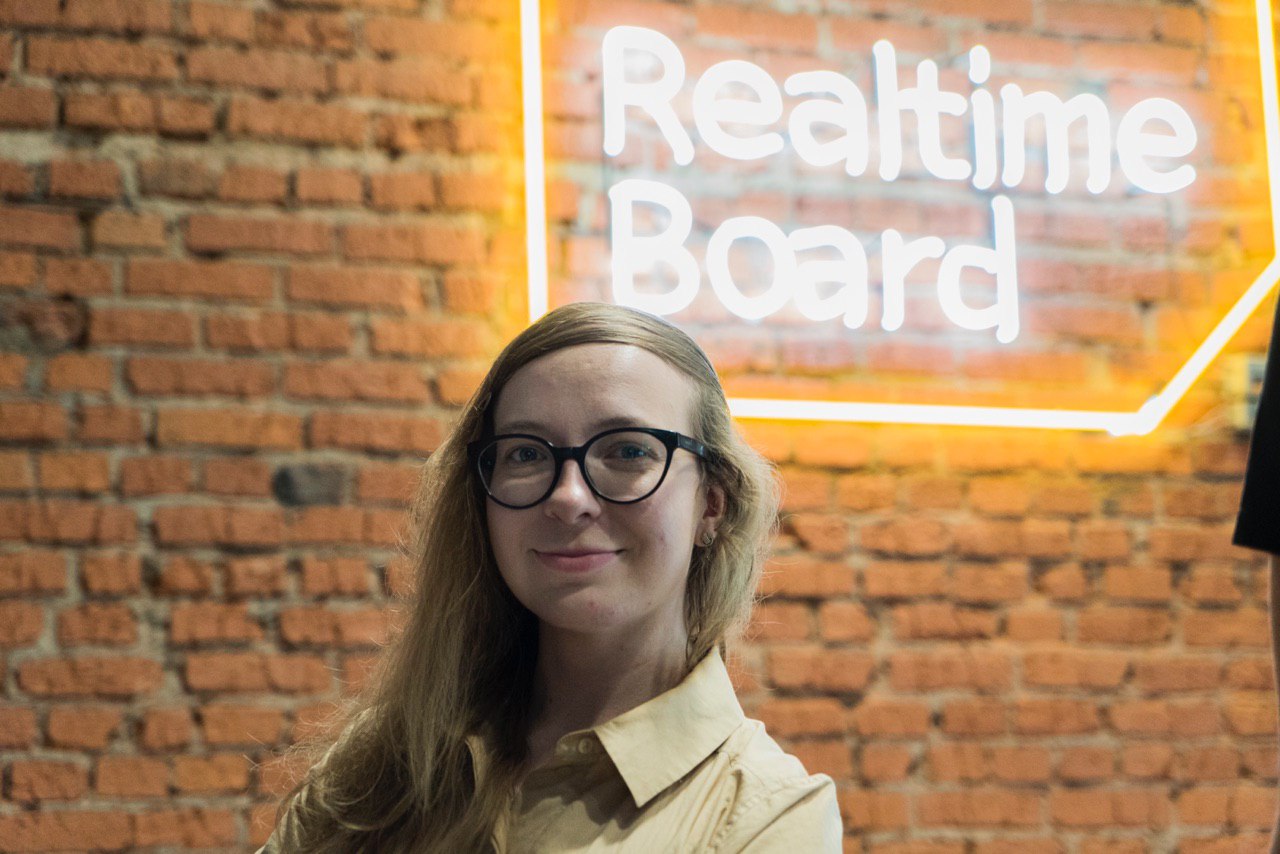
Since we started talking about it, who are your competitors?
Straight - Conceptboard and Mural. Indirect - these are products that solve one of the problems. For example, LucidChart for charts, MindMeister for mindmaps, StoriesOnBoard for user-story.
In fact, this is our value proposition: instead of 10 products for different tasks, use one. We strive to solve 80% of such problems around the visual collaboration.
Visual collaboration is not about design. We do not seek to compete with Adobe, Sketch, Figma. We are more likely about any visual solution to problems with other people. At the same time it is important for us to maintain the simplicity of the product as part of the DNA. The product spreads quickly because it is simple.
You talked about a method that helps to spread the product from the bottom up ...
Yes, it is called " land and expand . " The product lands on a group of people and starts growing. At best, just like a virus. Foodstuffs dream to make it work that way. But it turns out not at all.
A great example of success is Slack. Just replaced in corporations and messenger, and mail. People need communication in companies every day. If a small but active group begins to use slake, it penetrates the rest of the organization very quickly.
There is a trend for "consumerization of the enterprise" - b2b products are made such that they are brought into the company by the end user. The paradigm of companies like SAP and other ERPs, where you need to implement software from top to bottom, is leaving. The role of decision making about tools is shifted down to where people work directly with tools. Often we see this when introducing into the agile corporation, and what is called digital transformation .
Are you a shoemaker with boots? How much do you do in your own product?
Lots of. We do not do detailed planning and task tracking there, because Miro is not intended for this. But every project inside starts with a board. Honestly, I often think about how much time it would take to communicate if it were not for Miro - it would be very difficult.
Now we have a lot of internal use: these are workshops with a distributed team, different schemes, and prototypes, and research. Virtually all grocery work there.
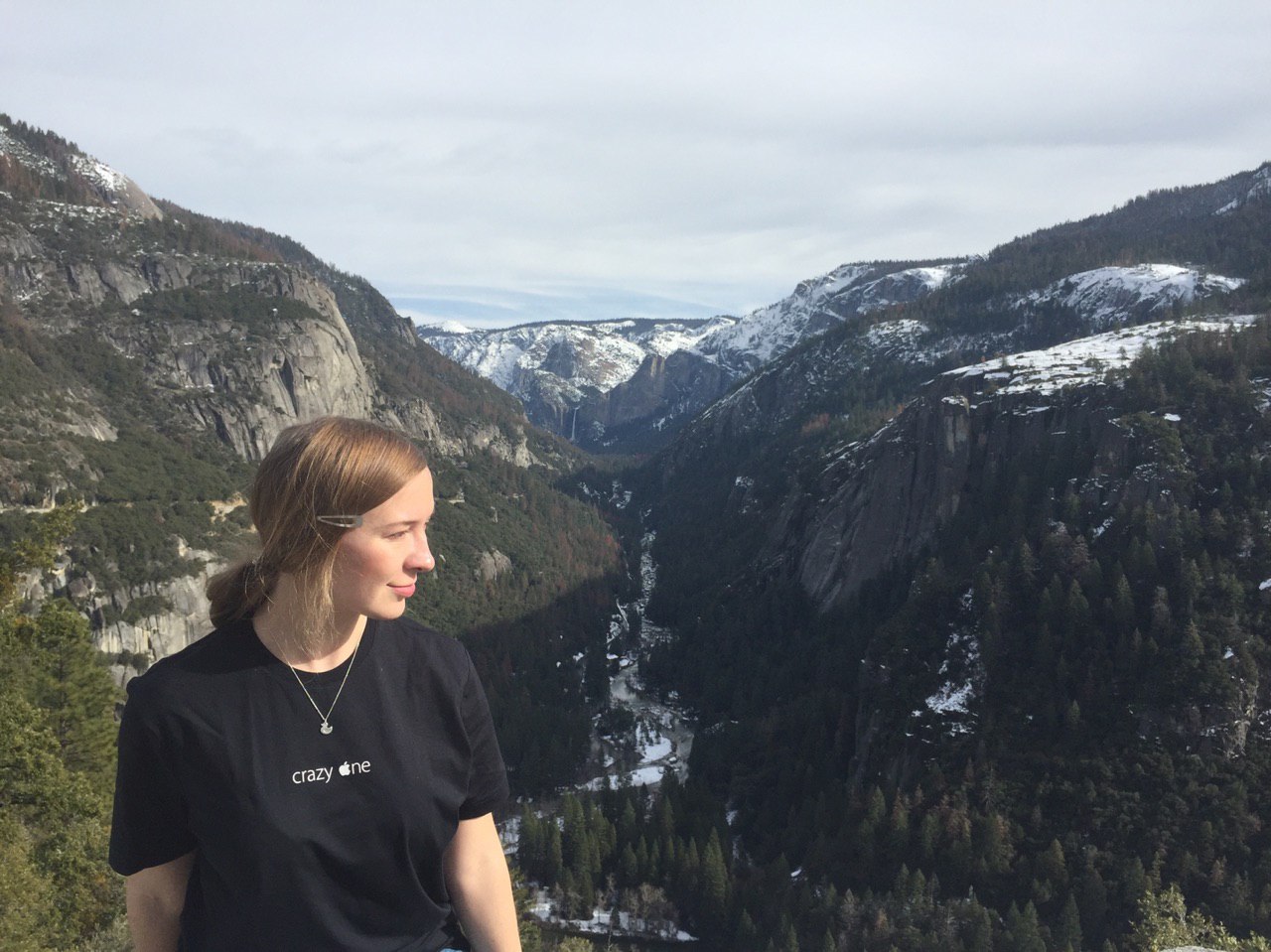
People and Culture
Last year you spoke at ProductCamp, and talked a lot about group dynamics, culture, values, trust, openness. Frankly, these are not the parameters that you expect to hear from a growing startup CPO. Why is it important?
Because there is no other way. You can achieve goals in different ways, but culture is very important to us. Not just like some emotional things - people work well together in a classroom culture. It helps grow. You cannot describe all processes, you will not create instructions and precedents for everything. Therefore, the role of culture is very large.
There is a turning point when founders turn from those who translate values into those who support them. When the team itself becomes the people in the organization that make culture.
Intercom Des Trainer coowner has excellent posts on how to make a product strategy. And in one of them, he notes that as the team grows, the founding team gets further from the product. The company outgrows the product, becomes a business. There are functions such as marketing, sales, operations. If the founder thinks about all these things by himself, it will be difficult for the business to grow.
Therefore, when you cannot describe the processes, you need decision-making principles. This is culture.
Reed Hastings (CEO Netflix) has a famous mantra, that culture is who we hire, who we raise, and who we fire ...
And there is. People are carriers of culture. Our team creates a culture, and thereby determines how we all make decisions.
What is most important in teamwork?
The trust.
In personal relationships, trust is built in the same way as in a team? In the sense that there is a family, and there is your team at work ...
The basis, all the same, is trust between people. Emotional security. Ability to make mistakes. Be as you are. In fact, in the work it is the same, only there is a certain angle from which you can look at it all.
Experiments in products are, in fact, errors. You need trust and emotional security to exercise them. You will be a fachit. But there will be no condemnation. This is normal. You understand and accept mistakes, it becomes a common story.

Awareness and development
The words “awareness”, “degree of maturity”, “self-awareness” sound in your speeches. What does all this mean?
This means the extent to which people understand their emotional reactions, strengths and weaknesses, and how they can manage them.
Recently, all and sundry talk about Mindfulnes. The feeling that this is becoming something superficial, a commodity. Even the term appeared, Mac Mindfulnes. What do you think about this?
I’m not talking about mindfulnes, in fact, I don’t see any sense in scattering terms. We are all human beings, we interact with each other, and often we are not aware of what awareness is: how we look from the outside, what emotions we experience. This all affects others. To talk about mindfulnes I do not belong. For me, this story with HYIP - it does not bother me much. The essence itself is important, but I don’t want to ride on the ridge of the HYIP.
Do you think self-development is a useful thing or unnecessary crap?
Useful. There is such an angle of view on this question. If you want to develop, how? Will you wait for someone to come and help develop? For example, we, as a company, create the conditions for this. But if you do not do it yourself, then ... How did Lebedev have the phrase: “How to motivate yourself? No, stay in the ass. "
In short, therefore, you are responsible for yourself and for your development. Take the legs in the handles and go to develop. There is no other way. But whether it is useful or not ... the main thing is to use it skillfully. If it is fun, great. If you do not get anything - this is garbage. Then, for example, you need to start working with someone external, with a coach.
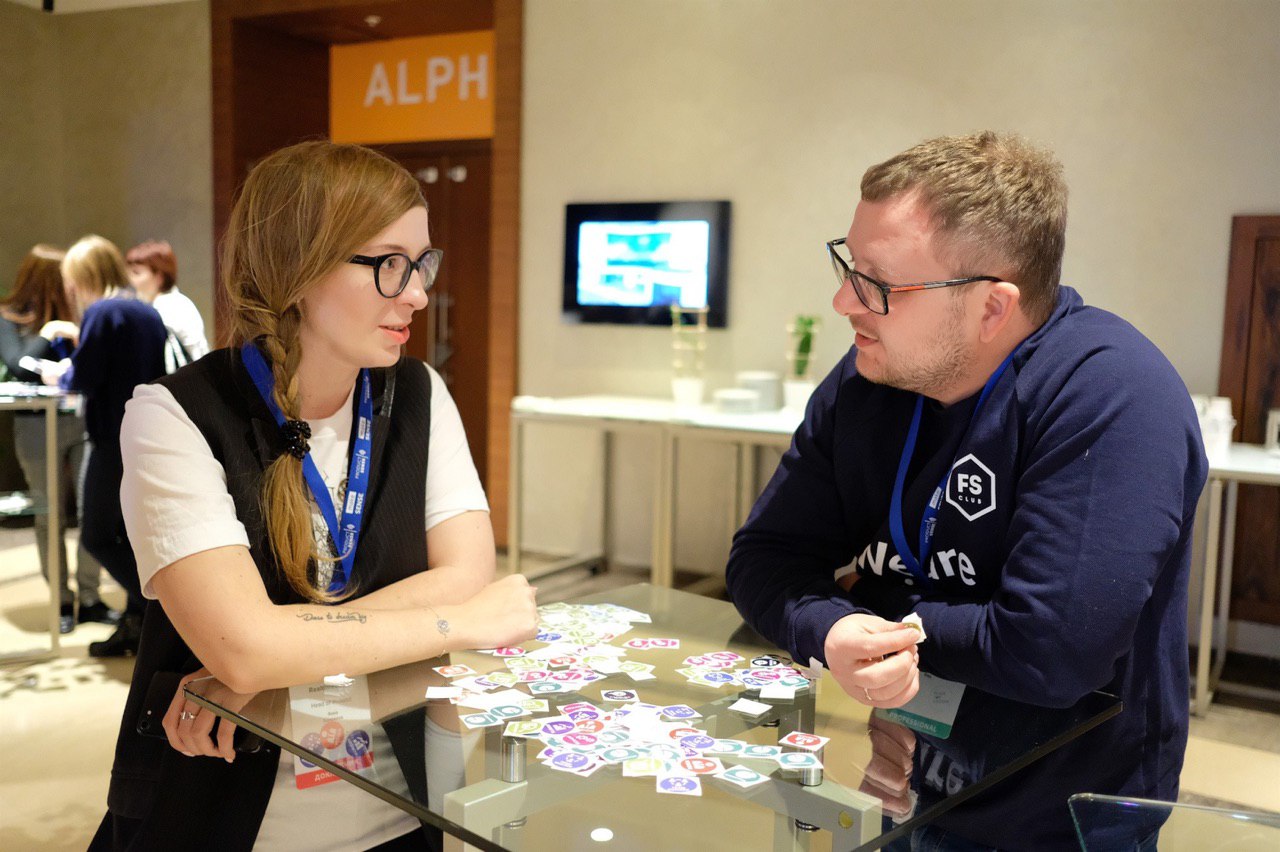
Behavior change, skills, attention hygiene
It is known that changing habits is difficult. How to change a person?
Question: Why? If he likes where he is, he will not change. If he is stuck in the Karpman Triangle, where he is the victim, then the rescuer, then the aggressor. When a person finds himself in a situation where he does not like, but he does not do anything about it, that is another question. The way to get out: to realize where you are in that triangle; go beyond it; understand what kind of emotions and feelings; get out of the position of the victim in the so-called position of the author - and do something with this situation. A shift occurs when you realize that this is all perception. The “reality distortion field” disappears.
I am for someone to help you with such things. You may not see very much. You do not know what you do not know - this is called unconscious incompetence. A mentor, coach, mentor or psychotherapist can help.
Does the modern technological world need attention hygiene?
Required. Because the technological world, but we have not ceased to be people in it. We are where our attention is. What is it necessary to do? A few things:
- The man himself to be happier. Happier people create better relationships, work better, they get wonderful products.
- Attention affects everything around. It all starts with a person, and then it goes on to systems and processes. You are where your attention is. If it is in the field of where there is tin, crisis, negative, then you will think about how to defend yourself. And someone will not care for everything, he decides to build a new brave world.
It turns out idealism?
Not idealism, but goals. Where is our attention - where we build, or where we defend ourselves from attacks? Another point: what to do with a good, interesting goal, how to achieve it? You can think how everything will not work, but you can think how to do it. Moreover, it is possible to relate to everything: from small tasks to global ambitions.
As an example, I think that Ilona Mask, who runs Tesla to Mars, will succeed. A question in attention. He is fine with him.
With all the purposefulness of Mask, there are many signals that it is very difficult for him to get along with his staff. Many fade, go ... Do not you think that there is some polarity - achievement and development of people?
Perhaps someone comes to Tesla to Mask to burn out. I think this is a cultural issue. The question of management. I would not put these things as the opposite: achievement - relationships with people. It looks more like a matrix.
What's in the upper right corner?
I am not a business consultant, I do not compile matrixes every day. (Laughs.) We strive for both achievements and relationships. Atlassian is not the only company with such a culture. Many CEOs and founders who were on Saastr talked about this. Many of them earned enough babala, and at the same time they talk a lot about culture. You talk to people at completely different levels of the hierarchy and - they all talk about culture.
For many talented people it is super important to be human at work. Atlassian is a great example for me: everything is built on teamwork. The CEO of SmartSheet spoke about values at the conference. Dropbox says a lot about it.
When people at different levels say the same thing about culture, this can be believed. Each company has its own culture. If Musk works this way and so achieves results, then he attracts such people. He has super ambitious challenges. Let's see what happens.
What skills would you like your children to have?
- "Growth mindset." Super important. Most of the things in it are embedded, for example, self-healing. Understanding that mistakes are a step towards improving results. Mistakes are not defeat. Things and circumstances are different, they should not be perceived positively or negatively. Growth mindset is about how to move forward. It helps to be happy.
- Awareness. We will not get away from it. They are next to the previous skill.
- Communication. The ability to build relationships, empathy, understanding of people, the ability to give in relationships.
Happiness - what is it? And do you need to chase him?
I like the definition: happiness is a feeling of total correctness of what is happening with you in the moment. I do not understand how to chase him. This is about living present. If you are in the moment and understand that you are where you would like to be - then this is happiness. And if you want to escape somewhere ... But it is a matter of perception: where is your attention.
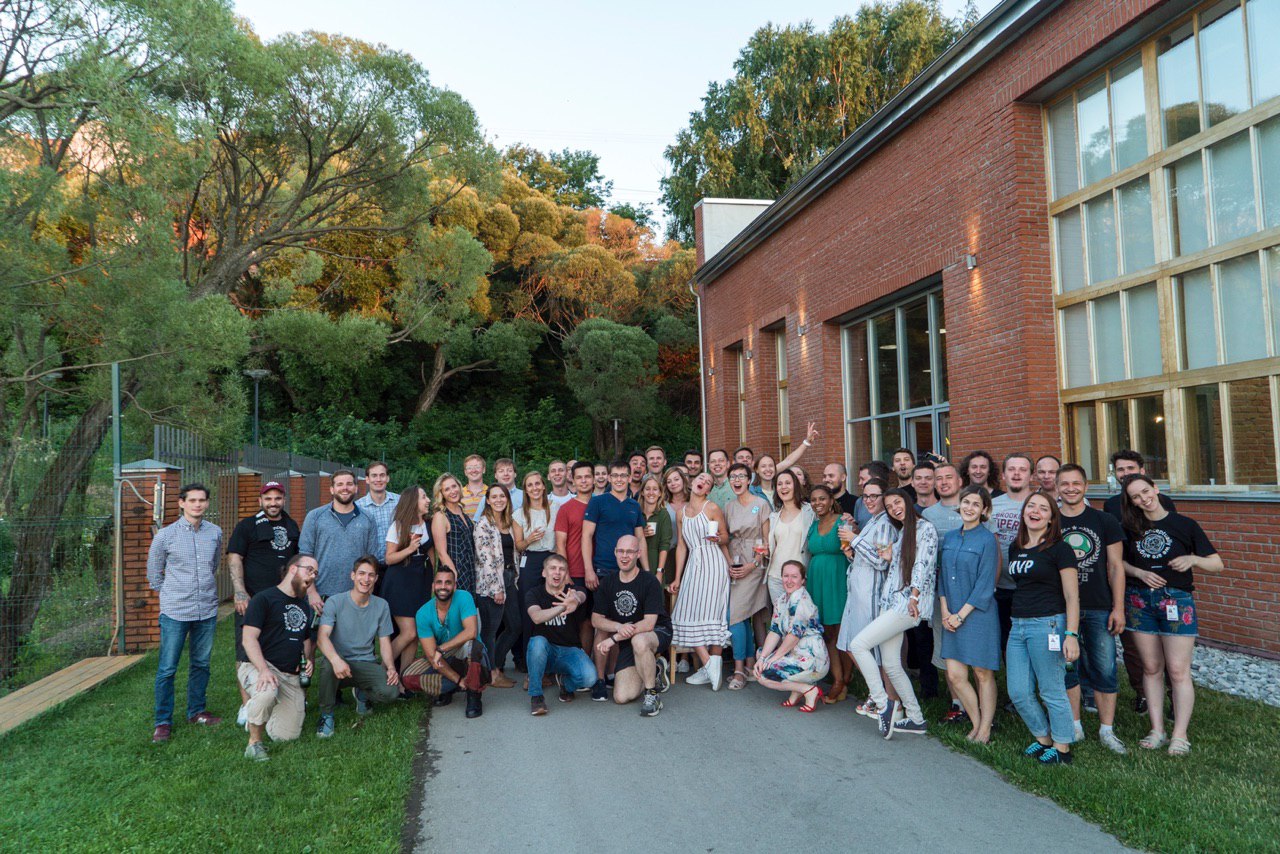
Conclusion
Top 3 product managers you follow. It is possible in Russia, it is possible in the world.
I rather look at the approaches of companies: HubSpot, Intercom, Slack, Atlassian. But if you name individual people, then:
- Brian Balfour, Reforge. He was VP of Growth in HubSpot, he has a cool blog. Now doing his consulting, Reforge. If you roll back, it is clear that HubSpot is a forge of personnel. Allows people to germinate.
- Des Traynor, Intercom. He's always cool about the product. He is sick of it. There is also a VP of Product Paul Adams. Cool talks about the process.
- David Skok, forentrepreneurs.com. He writes about SaaS in general. Building a business history, product-led growth, how to embed sales marketing, product separation, etc.
In Russia, too, there are a lot of cool guys, but not everyone writes. I read Anya Buldakov, Kostya Gorsky in Russian.
What is important for a novice product to build a career in a tech start-up?
All startups are different, and the product has a different role depending on the company. First of all, you have to answer yourself who you want to be. Well understand the company, its expectations, and whether they coincide with yours.
We even have junior, even senior, even VP - it is very important that you understand the process from beginning to end. How to cut down a feature, do marketing, support it, move forward, close.
Anything you want to say to readers?
We spend a lot of time at work. And besides what the content of the work, there is an important thing - people with whom, we share this time. It would be desirable that we really approached this, as people and teams who can achieve something more together. I would very much like people to build trust in teams, and consciously work in them.
It can be scaled: through culture, through principles. This is a very important thing. I would like us to pay more attention to how we work as members of teams and communities. Each of us is a member of several teams at once - both at work, and in personal life, and in society. It’s cool to learn how to discover people’s potential, get to know each other and build trust. Openness leads to surprising results.
Text: Alexey Ivanov
Community: @ponchiknews
')
Source: https://habr.com/ru/post/452228/
All Articles